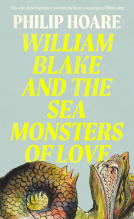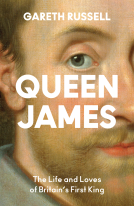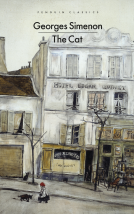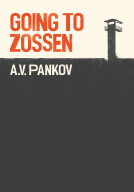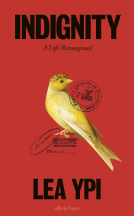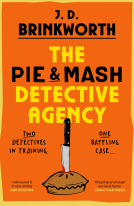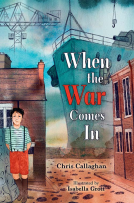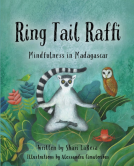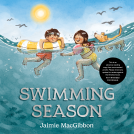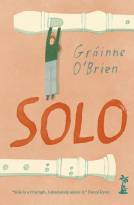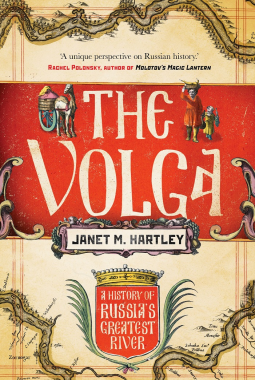
The Volga
A History
by Janet M. Hartley
This title was previously available on NetGalley and is now archived.
Send NetGalley books directly to your Kindle or Kindle app
1
To read on a Kindle or Kindle app, please add kindle@netgalley.com as an approved email address to receive files in your Amazon account. Click here for step-by-step instructions.
2
Also find your Kindle email address within your Amazon account, and enter it here.
Pub Date 2 Feb 2021 | Archive Date 21 Jan 2021
Yale University Press, London | Yale University Press
Talking about this book? Use #TheVolga #NetGalley. More hashtag tips!
Description
“A memorable journey into the heart of Russian social, political, and cultural history.”—Jennifer Eremeeva, Moscow Times
“‘Without the Volga, there would be no Russia.’ The final words of Janet Hartley’s book sound sweeping. But its 400 pages make the case powerfully.”—The Economist
The longest river in Europe, the Volga stretches more than three and a half thousand km from the heart of Russia to the Caspian Sea, separating west from east. The river has played a crucial role in the history of the peoples who are now a part of the Russian Federation—and has united and divided the land through which it flows.
Janet Hartley explores the history of Russia through the Volga from the seventh century to the present day. She looks at it as an artery for trade and as a testing ground for the Russian Empire’s control of the borderlands, at how it featured in Russian literature and art, and how it was crucial for the outcome of the Second World War at Stalingrad. This vibrant account unearths what life on the river was really like, telling the story of its diverse people and its vital place in Russian history.
Advance Praise
"With clarity and commanding breadth of vision, Hartley chronicles the life of a great river through times of shocking violence and times of tranquillity.”
—Rachel Polonsky, author of Molotov’s Magic Lantern
Available Editions
| EDITION | Other Format |
| ISBN | 9780300245646 |
| PRICE | $35.00 (USD) |
| PAGES | 400 |
Average rating from 5 members
Featured Reviews
 Mandy J, Reviewer
Mandy J, Reviewer
An academic and meticulously researched exploration of the Volga river, which in spite of its scholarly approach manages to be at the same time an accessible and very readable text, and an enjoyable read.
 John L, Reviewer
John L, Reviewer
Well, I'm very glad to report this book is both very heavy in its subject matter – starting with pre-Norman city states with their varying influences on the locals – and highly readable. It serves as a great source for historians genning up on a lot of Russian (and indeed pre-Russian) history, and as a great time-passer for the general browser who might perchance stumble this way.
So the lower Volga, the half of it nearer its end at the Caspian Sea, was a spread of different regional influences, at least until one from slightly further north was in the ascendant – the Rus. They couldn't have it all their way, with Genghis Khan's grandson and the Golden Horde invading and staying around for generations. But they finally did, once they were more recognisably what we'd call Russians – they soon captured the key city-states of the river, and made it theirs with their monasteries and their kremlins. Two insurrectionists were major blips, but only showed why the Volga is still such a key note in the flavour that is Russia – a melting pot of ethnicities, tradesmen, brigands, whose banks combine a series of large river-port cities surrounded by days' sailing through wilderness, with agricultural success on one side and empty poverty on the other... Nothing seems at times more Russian – it even grows to be "an obedient subject of the Russian empress" in at least society thinking.
The book manages to swerve almost into geography (and a bit of psycho-, with the river's perception in the culture and psychology of Russians), and ecology, before hitting us and the region with serf rights and land reforms, and then all of the twentieth century and all that that entailed.
There's no doubting the book's heft, with almost a third given to notes, bibliography etc, and commendable maps and more. I only asked for it on an inkling that it would teach me something about a corner of the country I've not been privy to before (having only been to Russia the once), but my intuition was right. With all the possible authority or proof in possession of a non-historian, I can declare my assumption this takes an almost post-doc level of historical focus, and makes it as readable as if the whole thing were an A-level set text. I can only see myself giving it five stars as a result.
Readers who liked this book also liked:
Philip Hoare
Arts & Photography, Biographies & Memoirs, Nonfiction (Adult)
Carine Laforest;
Children's Fiction


